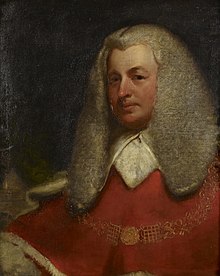John Frith, formerly a lieutenant in the 37th and then the 10th Regiment of Foot, returned to Britain in the late 1780s, convinced he had been unfairly pushed out of the
army.
And all because he, while serving in the
West Indies, had a divine vision that convinced him Jamaica wasn’t real, and the British government was covering that up.
In December 1787, according to Steve Poole in
The Politics of Regicide in England, 1760–1850, Frith petitioned the
House of Commons to “desire His Majesty to enforce his executive power of martial prerogative” and put him back on the rolls.
Frith then appears to have traveled around. I see references to him arriving in Liverpool and visiting
Holland, and he commissioned a memorial at his mother’s burying-place in Hempstead.
At the end of December 1789, Frith was back in London promulgating a “manifesto” and a
Protest Against the Democracy of the People of the Kingdom of Great Britain. He pinned the latter paper “on the whalebone in the courtyard of St. James’s” and at the Royal Exchange, press reports said. What’s more:
he publicly read it, and, in the most wild and extravagant manner, exhorted the persons who heard him, to espouse his cause, and not to see the constitution of their country subverted.
In Frith’s mind, his dismissal from the army had become a constitutional offense because the king, privy council, and Parliament were shirking their duty to address his petition. He warned:
After waiting upwards of four months and no attention paid, I don’t hesitate to pronounce our Ancient Constitution has given a mortal blow to her libertys and we have only the outward form of government.
Frith compared the situation to “
Sweden in 1772,” when King Gustaf III led a
coup to introduce absolute monarchy. No matter that Frith was asking the king to act absolutely on his behalf.
On 21 Jan 1790, Frith visited the Treasury Solicitors’ Office for help, only to be turned away. In St. James’s Park he saw
George III ride by in
his gilded carriage to open a session of Parliament. Frith waved a roll of paper at the king, who by tradition accepted petitions from his subjects. But then the former officer shouted, “You tyrant! You villain! You are going to be hanged like a rogue, as you are guarded by a parcel of rogues of constables!”
The newspapers reported, “a person of genteel appearance threw a large stone with great violence at the carriage, but fortunately missed the royal person.” People immediately seized “a man of genteel but frantic appearance” with “a bunch of orange-coloured ribband” sewn in the middle of his cockade. The press reported on one eyewitness:
Samuel Spurway…saw the prisoner, when his majesty’s carriage was passing him, throw a stone with all his force against it, the stone hit the coach about two inches below the glass, but his majesty was so engaged in conversation as not to observe it. The stone, Mr. Spurway picked up, and found it large and heavy.
On questioning the prisoner as to his motives for so horrid an attempt, he replied, ‘He was very sorry the stone had not hit the king!’ Mr. Spurway ordered Jordan, a constable, to seize him, who also saw him throw the stone.
That prisoner was, of course, John Frith. On searching him, the constables found twopence and a bag containing a copy of his manifesto. Frith identified himself as a former army officer and said he was seeking “a public examination” to restore his good name.
The authorities took Frith to the Whitehall office of the
Duke of Leeds, secretary of state for foreign affairs. In crowded many more royal officials: “the lord president, lord privy seal, chancellor of the exchequer, duke of Richmond, two secretaries of state, earl of Chatham, lords Hawkesbury and Kenyon, master of the rolls, attorney and solicitor generals, and sir Sampson Wright,” chief magistrate at Bow Street.
The constables described seeing Frith throw the stone. An unidentified
female relative “spoke strongly to the appearance of the prisoner’s
derangement of mind, previous to his committing this rash act.” Other people who knew Frith also answered questions about him.
As for Frith himself, he was recorded as telling the magistrate:
Until His Majesty is better advised and gives a Martial Redress…the Liberty of the British Soldier and Subject are Infringed by Despotism which may end in Anarchy and Confusion. . . . our chartered rights in the Tower will Supply the Deficiency to Carry on the Law of the Land. Now the Compact is Disolved as in the case of James II, June 1688.
The august council decided to commit John Frith to Newgate Prison and put him on trial for treason.
COMING UP: Frith at the bar.






